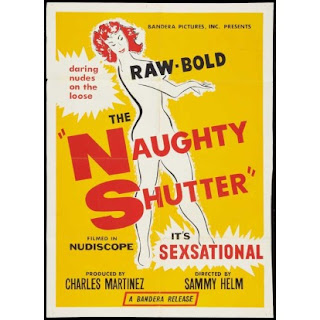Oh man. When I first heard about
Iconoclast, Larry Wessel's documentary on Boyd Rice, I knew I had to see it. I obtained a copy, watched it,
reviewed it for Film Threat, and then did an interview with the director. The movie was as good as I expected. The director gave me a great interview, and the world of Boyd Rice fans can come away with something new, and detractors can perhaps have their views changed a bit. It's a long documentary, but if you are familiar with Rice's life, you realize that there is even more that could've been covered (something the director agreed with in my interview). Some people are a bit unhappy, however, that I have added to the "allure" of this film.
Yesterday, while editing the Wessel interview, an e-mail from an old friend arrived in my inbox. A small section was devoted to Rice and the film. "I am disappointed that you would give more attention to a man who is a self-proclaimed Nazi. I can understand reviewing the film and even liking it, but from what I've read, this is a Pro-Boyd Rice film. Interviewing the director is a bad idea to [sic]. What if this makes more people watch the film? What if that makes them start to follow Boyd Rice and his beliefs? Do you want to be responsible for that? I know you lost friends over your praise of "Amateur Porn Star Killer," and I can see the same thing happening here. Do you think Boyd Rice would like you? Do you think he would appreciate your appreciation of his film? Before you send your interview out you should ask yourself if these are the types of ideas you want to help promote."

Cue the contemplation music as I turn introspective and wonder if "these are the types of ideas" I want to "promote." Are they? Would Rice like me? What if this makes more people watch the film? Who cares?
I want to promote well-made, intelligent films.
Iconoclast is both, and I do want more people to see it. It's also highly interesting. I don't care if Rice would like me or not. That's up to him. I don't have to agree with everything Rice has said, done or worn. When the interview with Wessel is published, the Nazi question does come up, and while I'm not sure I agree with Wessel on this, I believe the issue is more complicated than people think. Rice is a lot of things, but I don't think he is a "self-proclaimed" Nazi, and you'll see why if you watch the film. And that is the key.
To really judge this film, you have to see it. It's the same with any film, really, though I do believe you can make some judgments based purely on the genre and intent of a film without seeing it. To dismiss the film out of hand because you
think you know Rice and what he stands for does a disservice to Wessel and yourself. When Rice explains his youth and various obsessions, you start to see where certain things come from, and then the lines start to get a bit blurry.
By promoting this film I am
not promoting mediocrity. I am not promoting Holocaust revisionist theory, either. (In fact, I think few do that better than those who, like Steven Spielberg, think they are keeping the memory of the Holocaust alive in the form of museums and films. Let the hate mail fly, but I can stand by that.) I am promoting a film that I find worthy of attention for the subject it covers and the ideas it brings forth. My promotion of
Amateur Porn Star Killer did cost me a friendship or two. My positive review of the film and subsequent interviews caused me some grief, and some of the attention I helped the film gain caused the director some grief, too. I stand by my praise of the film, however, just as I stand by my praise of Wessel's feature. The fact that the general public wishes to remain ignorant in its judgment of it has zero bearing on how I feel about the movie or how I decide to get the word out. I appreciate my friend's concern, but it is misplaced. Watch the film and then come to me with your concerns.
Granted, this is not the movie for everyone. The wide-eyed lobotomies won't like it. Bored housewives looking for something edgy will find it
too edgy. Lonely goth kids into razors and a misunderstanding of Nietzsche will miss its finer points. People playing at fascists will embrace all the wrong things and won't get the irony. In other words:
a lot of people aren't going to get this film at all. And that's okay ... as long as they watch it before launching into an ill-conceived tirade against those who are willing to praise it.
Mandatory FTC Disclaimer: I received both films mentioned in this piece for review purposes. Clicking on a link will not only enlighten and disturb, but may also earn me a commission.

































